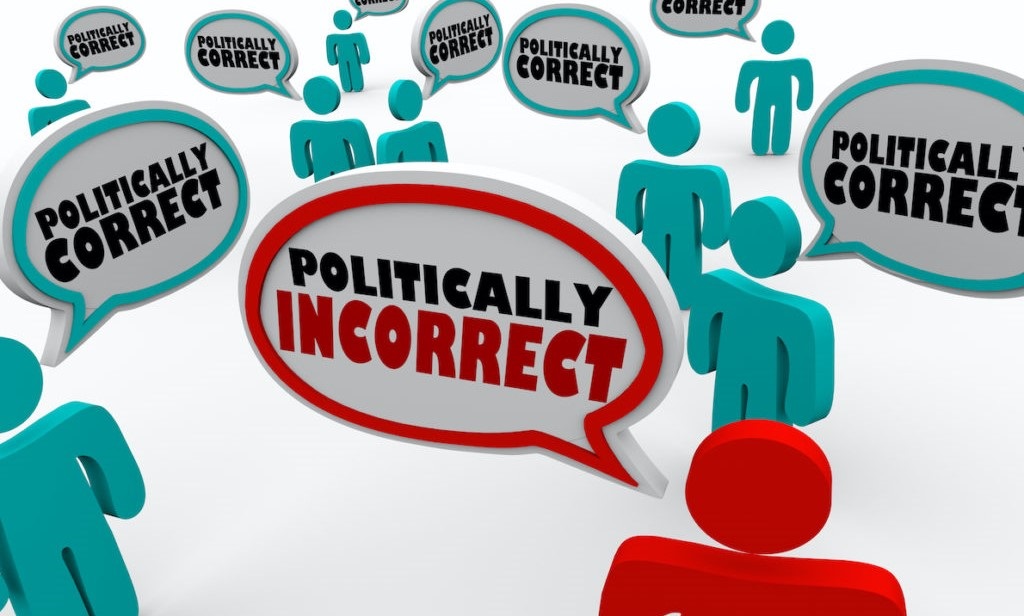
What is Political Correctness?
Political correctness (PC) refers to language and policies that aim to avoid offending marginalized groups. The concept arose in the 1970s and 80s to promote inclusive and equitable social norms. However, political correctness remains controversial, with debates around its usefulness and implementation. This article will examine what is political correctness with the history, goals, and critiques of political correctness in depth.
A Brief History of Political Correctness
Political correctness’s roots lie in the 1960s and 70s civil rights movements. Activists highlighted how language reinforced systems of oppression against marginalized groups. They pushed for eliminating language perpetuating harmful stereotypes and marginalization.
The Rise of Inclusive Language
In the 1980s, “political correctness” emerged as a response to these campaigns. Advocates aimed to establish inclusive language norms that took marginalized perspectives into account. For instance, the terms “African American” and “gay” became preferred over outdated and offensive labels.
Universities and workplaces instituted speech codes to promote respectful discourse and combat prejudice. Terms like “chairperson” replaced “chairman” to avoid masculine default language. Political correctness aims to create more equitable social standards.
PC Culture Wars
However, political correctness also ignited culture wars. Critics argued that PC policies infringed on free speech rights. Some claimed they stifled discussion through excessive censorship. Others argued the focus on language distracted from addressing systemic inequities. Debates raged in the 1990s “Culture Wars” over political correctness in academia and beyond.
Key Goals and Values of Political Correctness

Political correctness aims to establish inclusive language and policies to reduce discrimination. However, critics debate the effectiveness of its approach.
Promoting Equality and Respect
A core goal of political correctness is promoting equitable treatment and social justice. Proponents argue language shapes attitudes and behavior. Inclusive language encourages respect by avoiding marginalization. PC policies like safe spaces and trigger warnings aim to foster environments where people of all backgrounds feel supported.
Shifting Social Values
Political correctness proponents also argue that social values and norms change over time. Terms now seen as offensive were once commonplace. PC language aims to update standards to reflect evolving attitudes toward diversity and privilege. Champions believe these shifts can help create more just societies.
Critiques of Imposition and Censorship
Critics argue political correctness too hastily imposes speech standards. They claim PC culture stifles free expression and open discussion through excessive censorship. Some note that avoiding offensive language does not erase prejudices or promote substantive equality. Others express concern that the focus on political correctness distracts from enacting policy changes to address systemic inequities.
Key Debates and Controversies
Political correctness remains controversial decades after its emergence.
Here are some of the most heated ongoing debates:
Free Speech Concerns
One major critique is that political correctness limits free speech rights and open discussion. Critics argue that stigma around insensitive or offensive issues shuts down conversations and the voicing of controversial opinions. They claim political correctness chills speech and police thoughts.
Defenders counter that PC norms do not legally restrict speech but aim to discourage harmful language. They note that free speech has limits and that marginalized groups also have rights against discrimination and harassment. However, concerns persist over censorship implications.
Impacts on Academia and Education
Political correctness has impacted education significantly. Universities instituted speech codes and “trigger warnings” to foster inclusive environments. Critics argue this excessively shelters students and limits intellectual discourse.
However, advocates say these measures help provide equal educational opportunities by avoiding marginalization. Debates continue over balancing free expression and inclusion in academic settings.
Culture Wars and Polarization
The political correctness debates fueled America’s polarizing 1990s “Culture Wars.” Conservatives argued that PC culture reflected liberal overreach and threatened tradition. Progressives claimed resistance aimed to uphold systems of privilege.
These explosive debates contributed to partisan divides and brewing backlash against political correctness. Though openness to diversity has grown, opposition to perceived PC orthodoxy persists in contemporary politics and culture. Conflicts over issues like gender-neutral language continue to divide Americans.
Addressing Discrimination
A significant question is whether political correctness effectively addresses discrimination and promotes justice. Critics argue it provides superficial solutions that distract from enacting meaningful reform. They claim inclusive language does little to undo entrenched systemic inequities.
Proponents counter that language norms impact attitudes, and small changes can yield fundamental shifts in treating marginalized groups. However, concerns persist that political correctness fails to transform social and political structures, maintaining oppression fundamentally.
Examples of Political Correctness

Political correctness has impacted language use, policies, and culture in a variety of contexts.
Here are some notable examples:
Inclusive Language
- Gender-Neutral Pronouns: Using “they/them” in place of “he/him” or “she/her” to avoid binary gender assumptions.
- Identity-First Language: Referring to someone as a “disabled person” rather than a “person with disabilities” to recognize disability identity.
- I am avoiding Racial, Ethnic, and Religious Stereotypes, Using specific ancestral terminology like “Italian American” rather than insensitive terms.
Educational Policies
- Trigger Warnings: Alerts before potentially distressing class content to enable trauma-informed learning.
- Safe Spaces: Designated areas where marginalized students can share experiences without risk of discrimination.
- Diversity Training: Workshops educating students/staff about microaggressions, privilege, and cultural sensitivity.
Corporate and Public Policies
- Gender-Neutral Bathrooms: Restrooms open to people of any gender identity.
- DEI Initiatives: Diversity, equity, and inclusion programs promoting representation and cultural awareness.
- De-platforming: Banning those who voice inflammatory views from giving public lectures/speeches.
Political Terminology
- We are replacing “Blacklist/Whitelist” with “Denylist/Allowlist” in tech contexts.
- I am using “police killing” rather than “police-involved death” to convey agency.
- I am substituting “houseless” or “unhoused” for “homeless” to avoid negative assumptions.
Conclusion
Political correctness has been hotly debated since its rise in the 1980s. Advocates view it as essential for fostering inclusion and combating prejudices. Critics argue it stifles expression while failing to enact meaningful structural reforms. PC language and policies aim to balance civility and equality with open discourse. However, striking that balance remains highly complex and contentious.
Political correctness has impacted education, policy, and public discourse significantly. But it is viewed by some as an orthodoxy that demonizes dissent. Others see it as an essential cultural shift toward justice that continues to meet resistance—ongoing debates center on whether political correctness promotes diversity or conformity, freedom, or restriction. Despite criticisms, PC culture reflects greater openness to marginalized voices. However, concerns persist around misapplications of PC norms for coercion rather than empowerment.
5 Key Questions about Political Correctness
Political correctness remains hotly debated.
Here are five essential questions that drive the controversy:
1. Does political correctness limit freedom of speech?
This is one of the most fundamental critiques of PC culture. Critics argue that stigmatizing potentially offensive language and ideas restricts expression and controls thought. However, defenders note free speech has limits, and inclusion requires some restraint. The tensions between rights, civility, and open discourse continue to fuel debates.
2. Is political correctness essential for inclusion and equality?
Advocates argue language and conduct norms must evolve for society to become more just and equitable. They claim small linguistic shifts can change minds and encourage more respectful treatment of marginalized groups. Critics counter that systemic change requires more than surface-level correctness. Debates persist over PC’s capacity to spur social progress.
3. Does political correctness advance “groupthink” and orthodoxy?
Critics argue that PC norms shut down intellectual diversity under the guise of tolerance. They claim those who defy conventions get vilified regardless of intent, breeding fear and conformity. But proponents counter that PC aims not to stifle dissent but to discourage needless offense. Striking the right balance remains challenging.
4. Are “politically correct” policies helpful or excessive in academia?
Steps like trigger warnings remain especially controversial on campuses as critics argue they shelter rather than educate students. However, advocates believe they provide necessary support for inclusive learning, especially for marginalized groups. Determining appropriate policies fosters endless debates over rigidity versus accommodation.
5. Does political correctness address societal inequities effectively?
A major critique is that political correctness provides only superficial solutions that distract from deep-seated systemic issues. However, proponents argue language norms create openings for progress by shaping social attitudes and standards. Whether PC advances equality in practice continues to drive heated disagreements across the political spectrum.
